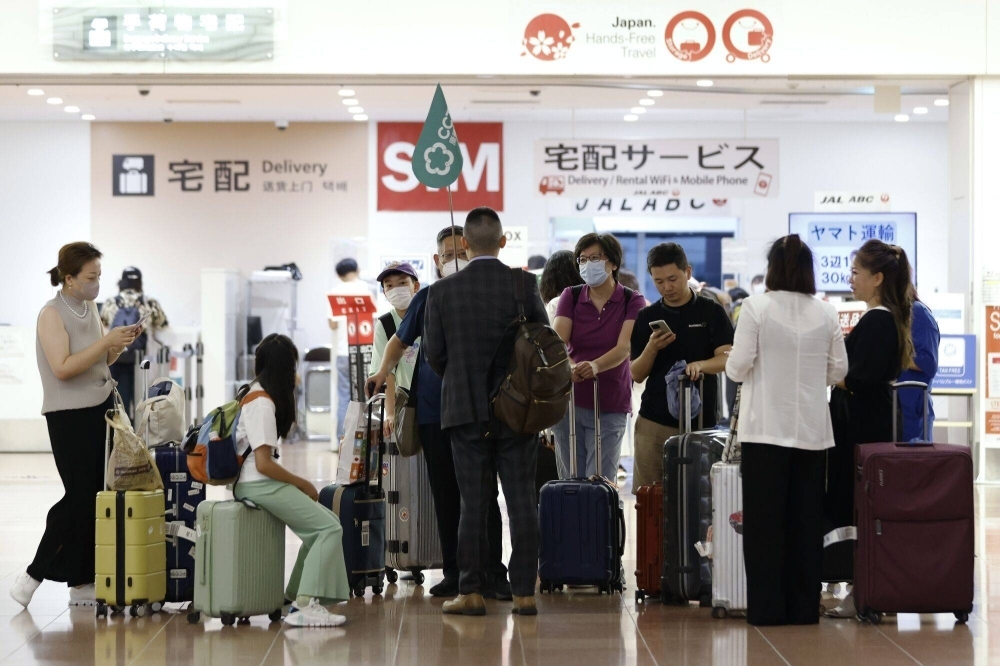
Japan kicked off efforts toward establishing overtourism countermeasures Wednesday, with a meeting of several relevant ministries in Tokyo.
The meeting follows Prime Minister Fumio Kishida’s comments to reporters in late August during his travels through Okinawa, stating that addressing issues caused by overtourism, including negative effects felt by local residents, is an “important task for the government.”
Inbound tourism has almost returned to levels seen before the COVID-19 pandemic, according to the Japan Tourism Agency. In July, 2.3 million foreign tourists visited Japan, totaling around 78% of the figures tallied during the same month in 2019.
China lifted its ban on group tours to Japan in August, so figures including tourists hailing from the world’s second largest economy haven’t quite recovered as quickly as the rest. When excluding these visitors, the July figure surpassed what was seen in 2019, making it the first month to log a full recovery since borders reopened fully last October.
“This demonstrates a rapid recovery and these figures provided the basis for our discussion” said Kenji Hamamoto, director for Visitor Experience Improvement at the Japan Tourism Agency during a briefing on Wednesday.
“However, many tourist destinations are rapidly regaining their popularity and while having a vibrant tourism industry is positive, there are concerns about overcrowding and breaches of etiquette.”
Mentioning the resurgence of both inbound and domestic tourists, the agency shared examples like long queues at public transportation hubs, littering and trespassing onto private property in order to capture photos as outcomes that could not only decrease visitor satisfaction but also inconvenience locals.
The agency did not specify when the new countermeasures will be complete. However, the goal is to have them compiled by the fall, with input from involved ministries, including the Environment Ministry, the Digital Agency, the National Police Agency and others.
The government and municipalities have pursued overtourism countermeasures in the past, but coming efforts would accelerate what’s already in play.
According to Hamamatsu, any established measures will not be limited to the largest tourism hubs, like Tokyo, Osaka and Kyoto. Instead, the ministries will consider a broader range of locations, such as smaller towns, villages and islands that have suddenly gained the attention of tourists and may not have the infrastructure for a sudden influx of visitors.
